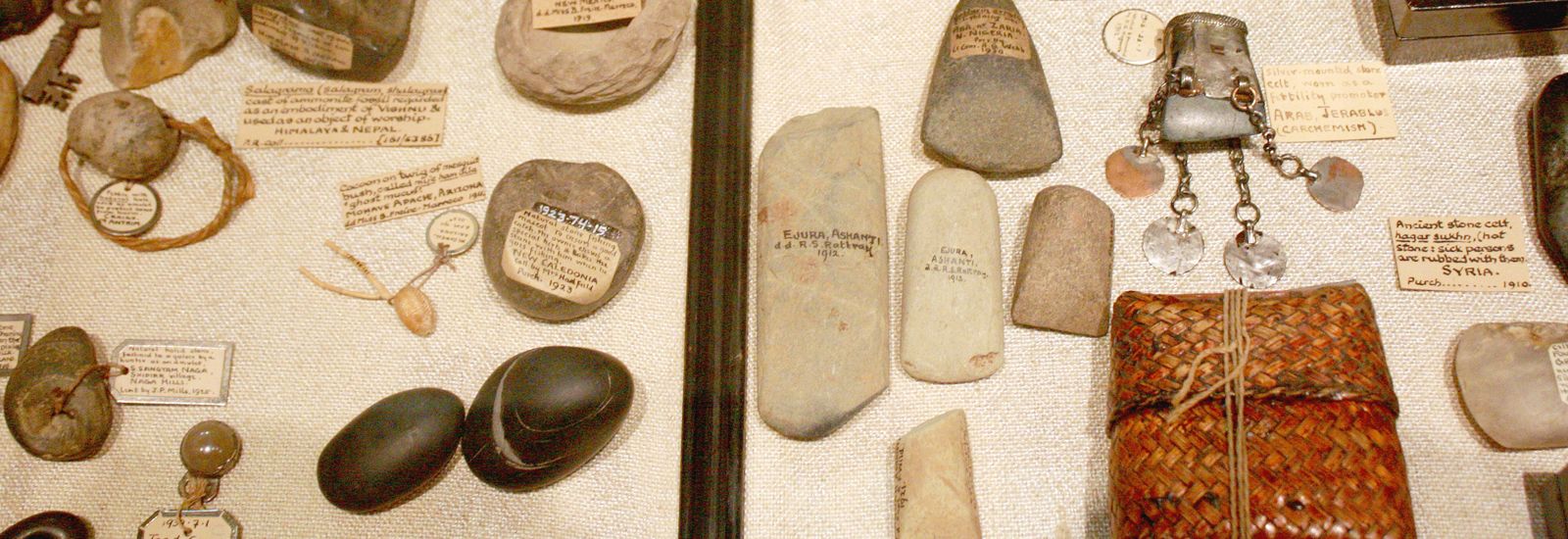
Archaeology and Anthropology
Course overview
UCAS code: LV64
Entrance requirements: AAA
Course duration: 3 years (BA)
Subject requirements
Required subjects: Not applicable
Recommended subjects: Not applicable
Helpful subjects: Combination of arts and science subjects
Other course requirements
Admissions tests: None
Written Work: Two pieces
Admissions statistics*
Interviewed: 58%
Successful: 16%
Intake: 20
*3-year average 2021-23
Contact
Tel: +44 (0) 1865 278121
Email: ugsupport@arch.ox.ac.uk
Unistats information for this course can be found at the bottom of the page
Please note that there may be no data available if the number of course participants is very small.
About the course
Archaeology and anthropology together encompass the study of humankind from the origins of the human species to the present day.
Both disciplines have a long history: archaeology grew from 18th-century antiquarianism, while anthropology began even earlier in the first days of colonial encounter.
Today, both subjects involve a range of sophisticated approaches shared with the arts, social sciences and physical sciences.
Oxford’s distinctive combination of archaeology and anthropology, studied over three years, offers an unusually broad perspective on human societies from early prehistory to the present.
The course offers a comprehensive guide to the richness and diversity of human cultural experience throughout space and time.
By choosing to study here you will be able to:
- explore how humans evolved
- get to grips with major transformational processes in human history such as the development of farming, the emergence of towns and trading systems and the spread of world religions
- learn why societies structure their families, economies and political systems in the ways that they do
- investigate how material culture represents and reproduces beliefs and ideologies.
Five Oxford institutions specialise in these subjects:
- The School of Archaeology
- The School of Anthropology and Museum Ethnography
- The Ashmolean Museum
- The Pitt Rivers Museum
- The Oxford University Museum of Natural History.
All five institutions play a key role in the provision of teaching for the degree.
Fieldwork/work placements/international opportunities
As part of your course you must undertake a minimum of four weeks of fieldwork (subject to approval by your tutors). This is normally completed in the summer vacation at the end of your first year.
Fieldwork can take place in field settings, or in a laboratory or museum and involve anthropological as well as archaeological projects. Recent destinations include Azerbaijan, Denmark and South Africa.
Financial support for your fieldwork is available from the University and may also be available from your college. You may also choose to engage in further fieldwork as part of your final-year dissertation, while other opportunities may exist for work-based learning in the University’s own museums.
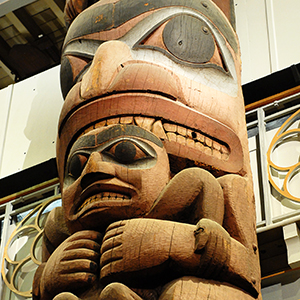 | 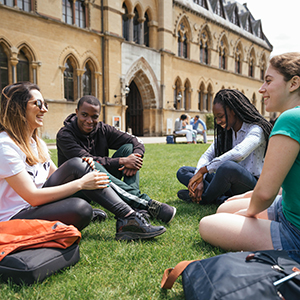 | 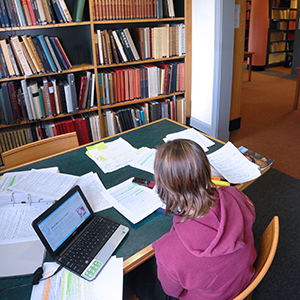 |
'I love studying Arch and Anth because it’s such a diverse course. No two days are the same and you get to study so many fascinating things: last week for example, I had a lecture on geology and stratigraphy, went to the library to do some reading on witchcraft, and then had a tutorial about the rise of early states and empires. I also spent three hours writing a paragraph about the presence of ancient bananas in New Guinea and what this showed us!' Izzy | 'Choosing Archaeology and Anthropology, for me, was about the amazing breadth of the subject. I had always favoured history and biology in school, and this degree offers ways to not only combine the two, but also to look at both history and science from a completely new angle… With my degree, I’ve had the opportunity for field trips, field work in southern England, and am planning on several months in South America...' Erin | 'The remit for Arch and Anth is essentially every human society in the world both today and throughout the whole of history. You can pretty much study anything within that, which is so exciting! I'd thought it would focus on the big civilisations (Greece, Rome, Inca, Maya, Egypt etc) but actually some of the most interesting stuff turned out to be the slightly more obscure areas, such as gift exchange in modern Japan.' Natasha |
Unistats information
Discover Uni course data provides applicants with Unistats statistics about undergraduate life at Oxford for a particular undergraduate course.
Visit the Studying at Oxford section of this page for a more general insight into what studying here is likely to be like.
Please select 'see course data' to view the full Unistats data for Archaeology and Anthropology.
Please note that there may be no data available if the number of course participants is very small.
Archaeology and Anthropology
A typical week
Your timetable will be divided into lectures, tutorials and practical classes. These will cover topics such as dating, isotope analysis, and the analysis of plant, animal and human remains, as well as artefacts.
In the first year you will spend around six hours a week in lectures, which focus on the course’s core papers. In Years 2 and 3, lectures for core and optional papers take up around ten hours a week. Throughout the course, there are one or two tutorials a week, (typically a total of twelve in each term).
Tutorials are usually two students and a tutor, but may include up to three students depending on circumstances.
Lectures will include the whole year group of around 25 students, although they are sometimes shared with Human Sciences students and/or postgraduates, and are therefore larger. Lecture sizes for optional courses are normally smaller and could be as low as 3-6 students.
Most tutorials, classes, and lectures are delivered by staff who are tutors in their subject. Many are world-leading experts with years of experience in teaching and research. Some teaching may also be delivered by postgraduate students who are studying at doctoral level.
To find out more about how our teaching year is structured, visit our Academic Year page.
Course structure
Year 1
Courses | Assessment |
|---|---|
| First University examinations: four written papers |
Years 2 and 3
Courses | Assessment |
|---|---|
A full list of current options is available on the Archaeology website. | Final university examinations: Year 2 - the option taken in this year is examined by a 5000-word-long essay. The Fieldwork and Methods paper is examined by a 5000-word-long report on the fieldwork completed at the end of Year 1, plus two 1000-word-long reports written in respect of the practical classes Year 3 – six written papers in respect of the remaining core courses and options, plus a 15,000 word dissertation, which is double-weighted. |
The content and format of this course may change in some circumstances. Read further information about potential course changes.
Academic requirements
Qualification | Requirements |
|---|---|
A-levels: | AAA |
Advanced Highers: | AA/AAB |
International Baccalaureate (IB): | 38 (including core points) with 666 at HL |
Any other equivalent qualification: | View information on other UK qualifications, and international qualifications |
Wherever possible, your grades are considered in the context in which they have been achieved.
Read further information on how we use contextual data.
Subject requirements
Helpful: | A background of studying both arts and science subjects can be helpful to students in completing the course, although there are no specific subject requirements for admission. |
|---|
If a practical component forms part of any of your science A‐levels used to meet your offer, we expect you to pass it.
If English is not your first language you may also need to meet our English language requirements.
Applying
All candidates must follow the application procedure as shown on our Applying to Oxford pages.
The following information gives specific details for students applying for this course.
Admissions test
You do not need to take a written test as part of an application for this course.
Written work
Description: | As part of your application all candidates are required to submit the following:
|
|---|---|
Submission deadline: | 10 November 2024 |
Visit our page on the submission of written work for further guidance and to download a cover sheet.
What are tutors looking for?
Tutors are primarily looking for an interest in, and enthusiasm for, the study of humans and their material culture, combined with an ability to digest and assimilate significant quantities of data and to construct evidence-based arguments.
While you don’t need to have prior experience of studying archaeology or anthropology, fieldwork experience and evidence of supplementary reading would be seen as one possible demonstration of your interest and commitment.
Tutors will be looking for the following qualities at interview:
- an ability to think independently
- potential and motivation for studying archaeology and anthropology
- enthusiasm and interest in the combined disciplines
- commitment to the requirements of the course.
Visit the Archaeology website for more detail on the selection criteria for this course.
Careers
Archaeology and Anthropology opens up a wide range of career opportunities. This is in part because the degree offers a unique perspective on how human societies operate and develop and on how people interact with each other.
This range of career opportunities is also due to the intellectually demanding requirements of an Oxford degree, and to the combination of independent study and tutorial teaching.
Graduates of this course have found opportunities in heritage management, international development, education, the law, the media and the Civil Service among other careers.
Note: These annual fees are for full-time students who begin this undergraduate course here in 2025. Course fee information for courses starting in 2026 will be updated in September.
We don't want anyone who has the academic ability to get a place to study here to be held back by their financial circumstances. To meet that aim, Oxford offers one of the most generous financial support packages available for UK students and this may be supplemented by support from your college.
Fees
Fee status | Annual Course fees |
| Home | £9,535 |
| Overseas | £41,130 |
Further details about fee status eligibility can be found on the fee status webpage.
For more information please refer to our course fees page. Fees will usually increase annually. For details, please see our guidance on likely increases to fees and charges.
Living costs
Living costs at Oxford might be less than you’d expect, as our world-class resources and college provision can help keep costs down.
Living costs for the academic year starting in 2025 are estimated to be between £1,425 and £2,035 for each month you are in Oxford. Our academic year is made up of three eight-week terms, so you would not usually need to be in Oxford for much more than six months of the year but may wish to budget over a nine-month period to ensure you also have sufficient funds during the holidays to meet essential costs. For further details please visit our living costs webpage.
Financial support
Home | A tuition fee loan is available from the UK government to cover course fees in full for Home (UK, Irish nationals and other eligible students with UK citizens' rights - see below*) students undertaking their first undergraduate degree**, so you don’t need to pay your course fees up front. In 2025 Oxford is offering one of the most generous bursary packages of any UK university to Home students with a family income of around £50,000 or less, with additional opportunities available to UK students from households with incomes of £32,500 or less. The UK government also provides living costs support to Home students from the UK and those with settled status who meet the residence requirements. *For courses starting on or after 1 August 2021, the UK government has confirmed that EU, other EEA, and Swiss Nationals will be eligible for student finance from the UK government if they have UK citizens’ rights (i.e. if they have pre-settled or settled status, or if they are an Irish citizen covered by the Common Travel Area arrangement). The support you can access from the government will depend on your residency status. |
Islands | Islands students are entitled to different support to that of students from the rest of the UK. Please refer the links below for information on the support to you available from your funding agency: |
Overseas | Please refer to the "Other Scholarships" section of our Oxford Bursaries and Scholarships page. |
**If you have studied at undergraduate level before and completed your course, you will be classed as an Equivalent or Lower Qualification student (ELQ) and won’t be eligible to receive government or Oxford funding
Additional Fees and Charges Information for Archaeology and Anthropology
Students must complete at least four weeks of approved fieldwork by the end of the second year. The cost of this will depend on the location. Funding is available from the University and potentially from your college to help towards costs.
Contextual information
Unistats course data from Discover Uni provides applicants with statistics about a particular undergraduate course at Oxford. For a more holistic insight into what studying here is likely to be like, please view the information below and explore our website more widely.
The Oxford tutorial
College tutorials are central to teaching at Oxford. Typically, they take place in your college and are led by your academic tutor(s) who teach as well as do their own research. Students will also receive teaching in a variety of other ways, depending on the course. This will include lectures and classes, and may include laboratory work and fieldwork. However, tutorials offer a level of personalised attention from academic experts unavailable at most universities.
During tutorials (normally lasting an hour), college subject tutors will give you and one or two tutorial partners feedback on prepared work and cover a topic in depth. The other student(s) in your tutorials will typically be doing the same course as you and covering the same topic. Such regular and rigorous academic discussion develops and facilitates learning in a way that isn’t possible through lectures alone. Tutorials also allow for close progress monitoring so tutors can quickly provide additional support if necessary.
Read more about tutorials and an Oxford education
College life
Our colleges are at the heart of Oxford’s reputation as one of the best universities in the world.
- At Oxford, everyone is a member of a college as well as their subject department(s) and the University. Students therefore have both the benefits of belonging to a large, renowned institution and to a small and friendly academic community. Each college or hall is made up of academic and support staff, and students. Colleges provide a safe, supportive environment leaving you free to focus on your studies, enjoy time with friends and make the most of the huge variety of opportunities.
- Each college has a unique character, but generally their facilities are similar. Each one, large or small, will have the following essential facilities:
- Porters’ lodge (a staffed entrance and reception)
- Dining hall
- Lending library (often open 24/7 in term time)
- Student accommodation
- Tutors’ teaching rooms
- Chapel and/or music rooms
- Laundry
- Green spaces
- Common room (known as the JCR).
- All first-year students are offered college accommodation either on the main site of their college or in a nearby college annexe. This means that your neighbours will also be ‘freshers’ and new to life at Oxford. This accommodation is guaranteed, so you don’t need to worry about finding somewhere to live after accepting a place here, all of this is organised for you before you arrive.
- All colleges offer at least one further year of accommodation and some offer it for the entire duration of your degree. You may choose to take up the option to live in your college for the whole of your time at Oxford, or you might decide to arrange your own accommodation after your first year – perhaps because you want to live with friends from other colleges.
- While college academic tutors primarily support your academic development, you can also ask their advice on other things. Lots of other college staff including welfare officers help students settle in and are available to offer guidance on practical or health matters. Current students also actively support students in earlier years, sometimes as part of a college ‘family’ or as peer supporters trained by the University’s Counselling Service.
FIND OUT MORE
- Visit the School of Archaeology's website
- Visit the School of Anthropology and Museum Ethnography website

Our 2025 undergraduate Open Days will be held on 2 and 3 July and 19 September.
Register to find out more about our upcoming Open Days.
RELATED PAGES
RELATED COURSES
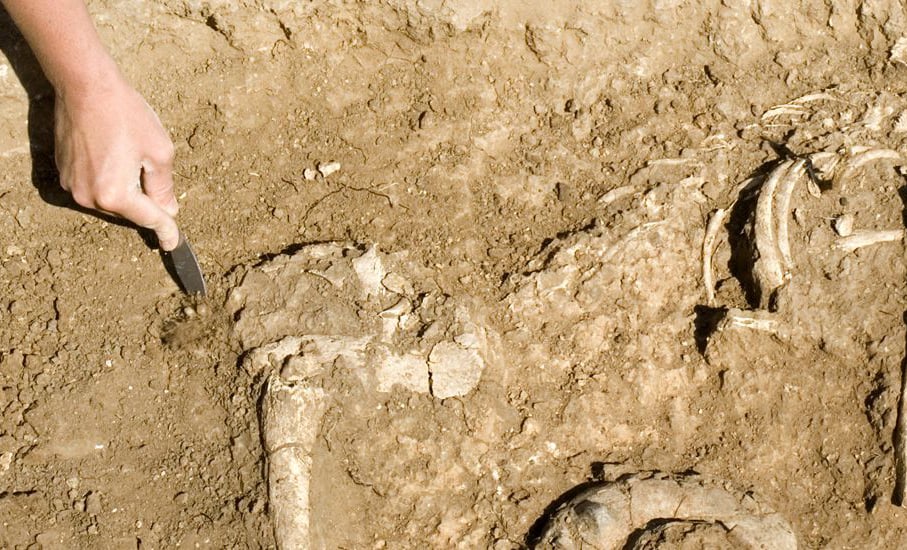
FEEL INSPIRED?
You might like to have a look at the Archaeology and Anthropology reading list or the Discover Anthropology website.
You can also listen to and watch videos from the School of Archaeology, including a range of talks and content available via YouTube.